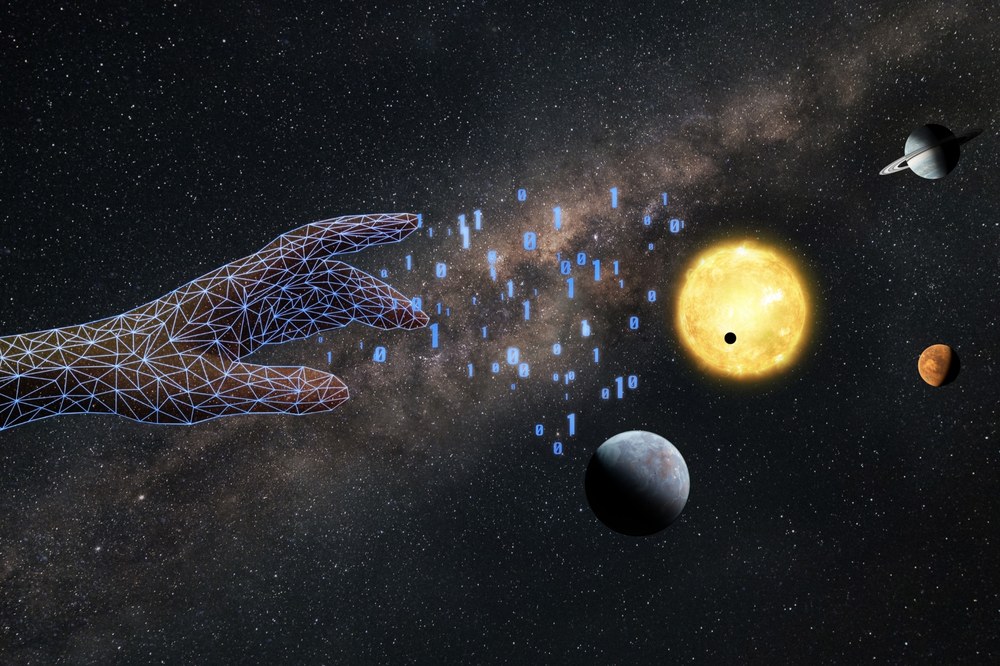How AI can help PLATO to discover exoplanets
Researchers at the University of Bern have developed an artificial intelligence (AI) model that can predict the architecture of planetary systems and use this information to infer the existence of undiscovered planets. The model uses what is known as transformer architecture, which forms the basis of large language models on which tools such as the recently introduced Swiss model Apertus and chatbots such as ChatGPT are based.
The study was presented at the joint Europlanet Science Congress and Division for Planetary Sciences (EPSC-DPS) 2025 conference in Helsinki. It also won the award for best poster at the Fast Machine Learning for Science conference in Zurich.
Jeanne Davoult, a former PhD at University Bern, now in the department Extrasolar Planets and Atmospheres and one of the key researchers puts it in a nutshell: “The Large Language Models predict the rest of a sentence based on the sequence created by the first few words. In our case, the sequence of outer planets in a system can be predicted, based on the first inner ones.”
As planets with short periods are easier to detect, PLATO will discover these planets first.
But as the now published study shows that there is a good chance to infer the architecture of the whole system from the first planet detection. In this way observation time can be used more efficiently.
More about it in “A transformer-based generative model for planetary systems” by Yann Alibert, Jeanne Davoult, and Sara Marques, A&A, 701, A149 (2025)

